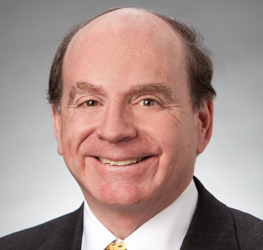
On January 9, 2018, The Centers for Medicare & Medicaid Services (CMS) announced a new voluntary bundled payment model program – Bundled Payment for Care Improvement Advanced (BPCI Advanced). The episode payment model, which is a second generation version of the BPCI program, will qualify as an Advanced Alternative Payment Model (APM) under the Quality Payment Program adopted as part of MACRA, which means that physicians, because they take on financial risk, may earn the Advanced APM incentive payments.
What is BCPI Advanced?
The BPCI Advanced program is a voluntary program that offers a single retrospective bundled payment covering services within a 90-day Clinical Episode. Participants may be involved in 29 inpatient Clinical Episodes and also, unlike the prior BPCI program, three outpatient clinical episodes – Percutaneous Coronary Intervention, Cardiac Defibrillator, and Back & Neck except Spinal Fusion. As with the prior BPCI model, target prices are provided in advance and are measured against the total Medicare fee for service spending and services during the selected Clinical Episodes. Participants who enter into the Participation Agreement with CMS will take on downside-financial risk from the outset of an episode.
Eligible Program Participants
BPCI Advanced will allow participation by Non-Convener Participants and Convener Participants. Convener Participants may or may not be Medicare enrolled entities and agree to take on risk for downstream entities. The Convener Participants facilitate coordination among episode initiators and bear the financial risk for the model. Non-Convener Participants are acute-care hospitals or Physician Group Practices, enrolled in Medicare, who are themselves episode initiators. They do not take risk for downstream entities.
Clinical Episodes are attributed at the episode initiator level with a CMS-defined hierarchy for attribution among different types of episode initiators. The Clinical Episode will begin with an inpatient admission for an inpatient procedure or the start of the outpatient procedure. Clinical Episodes continue for 90 days after the end of the inpatient stay or the outpatient procedure.
As with the prior BPCI program, payment under the BPCI Advanced program is tied to performance on specified quality measures.
Applications for participation in BPCI Advanced must be submitted by March 12, 2018. The Model starts on October 1, 2018 and continues through December 31, 2023.
The Future of Alternative Payment Programs
BPCI Advanced is the first Advanced APM announced by the Trump Administration. Although it is voluntary, it does reflect continuation of alternative payment programs under the Trump Administration. Some have questioned the new Administration’s commitment to alternative payment programs, although there have been suggestions that HHS Secretary Nominee Alex Azar has indicated enthusiasm for programs that pay providers based on quality, and Nominee Azar has suggested mandatory programs may be appropriate. Former Secretary Price was opposed to mandatory programs such as the Episode Payment Models (EPMs), the Cardiac Rehabilitation (CR) Incentive Payment Model, and the Comprehensive Joint Replacement (CJR) program. At the end of 2017, CMS terminated the EPMs and the CR Incentive Payment Model outright and terminated the mandatory nature of the CJR program.
